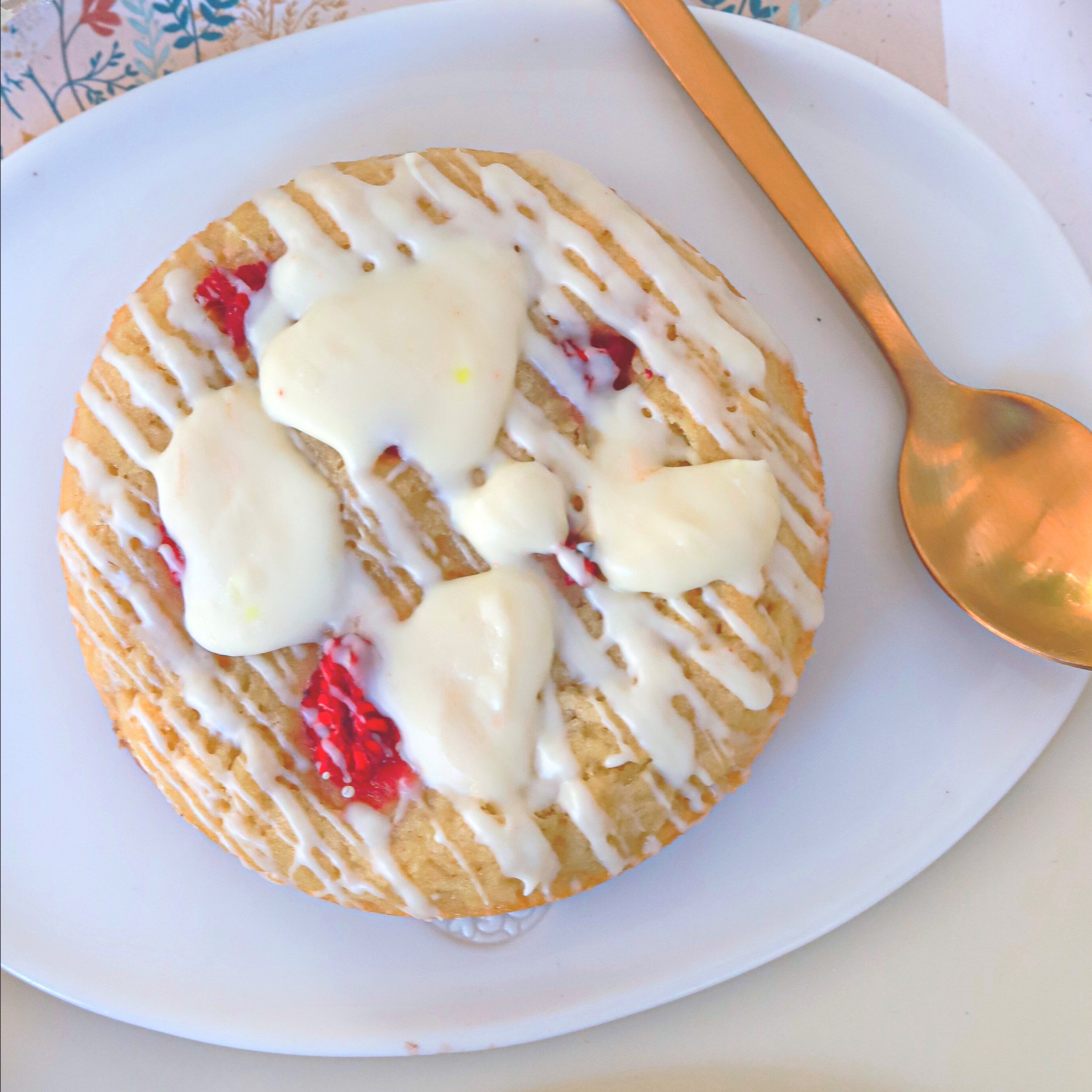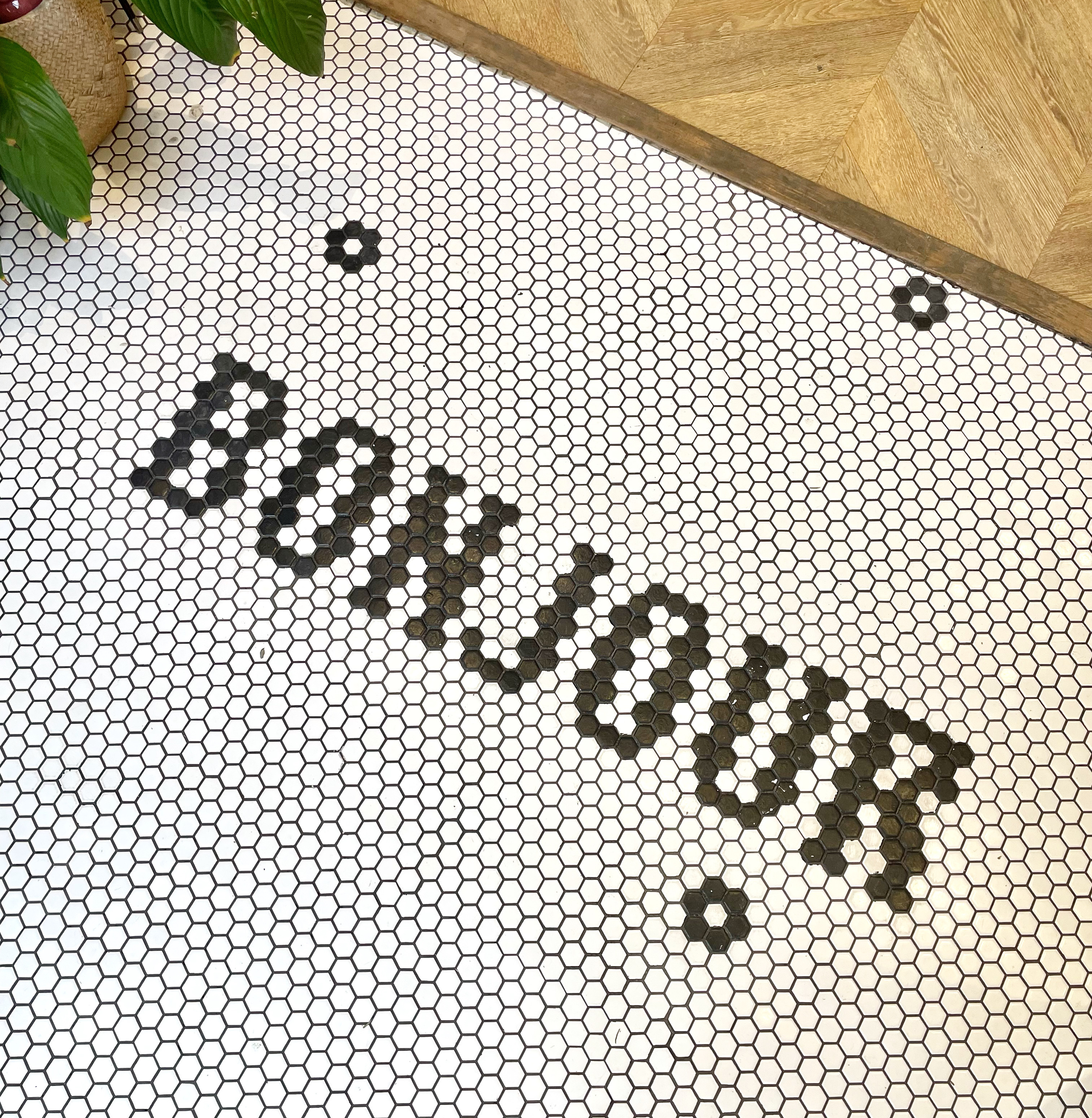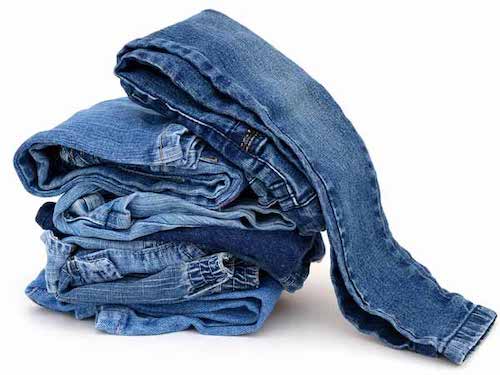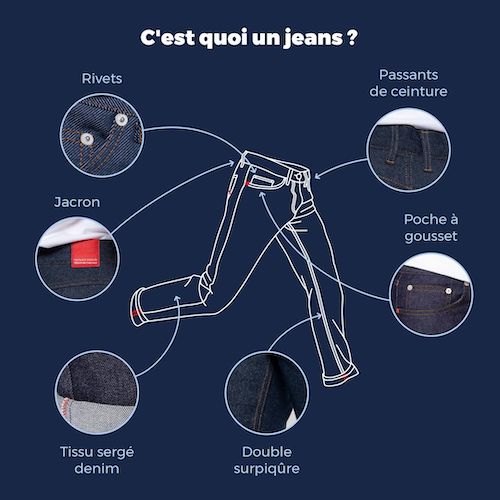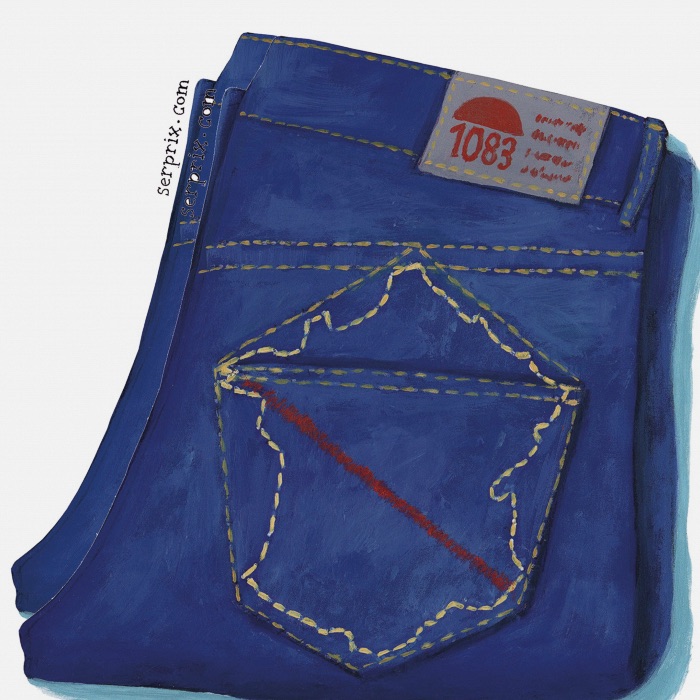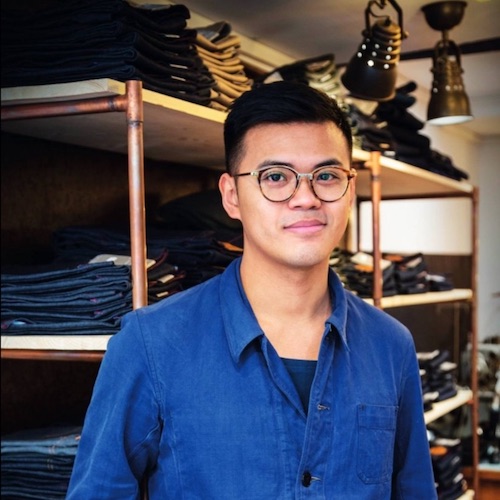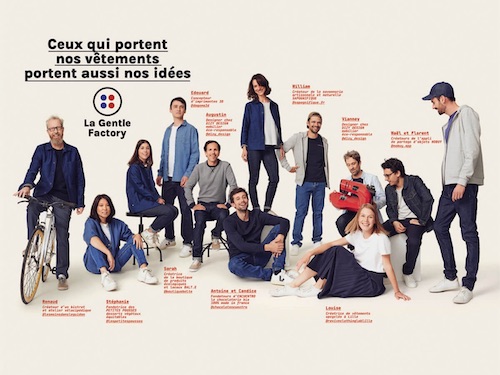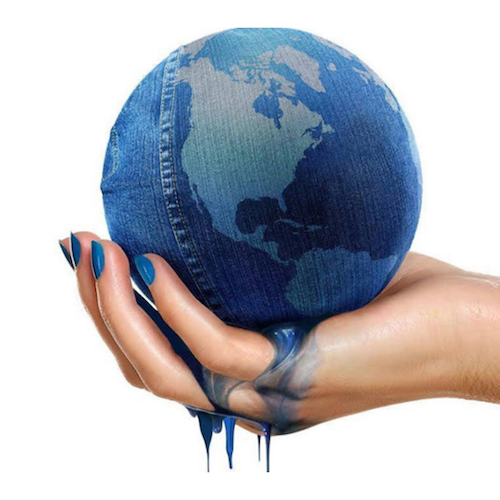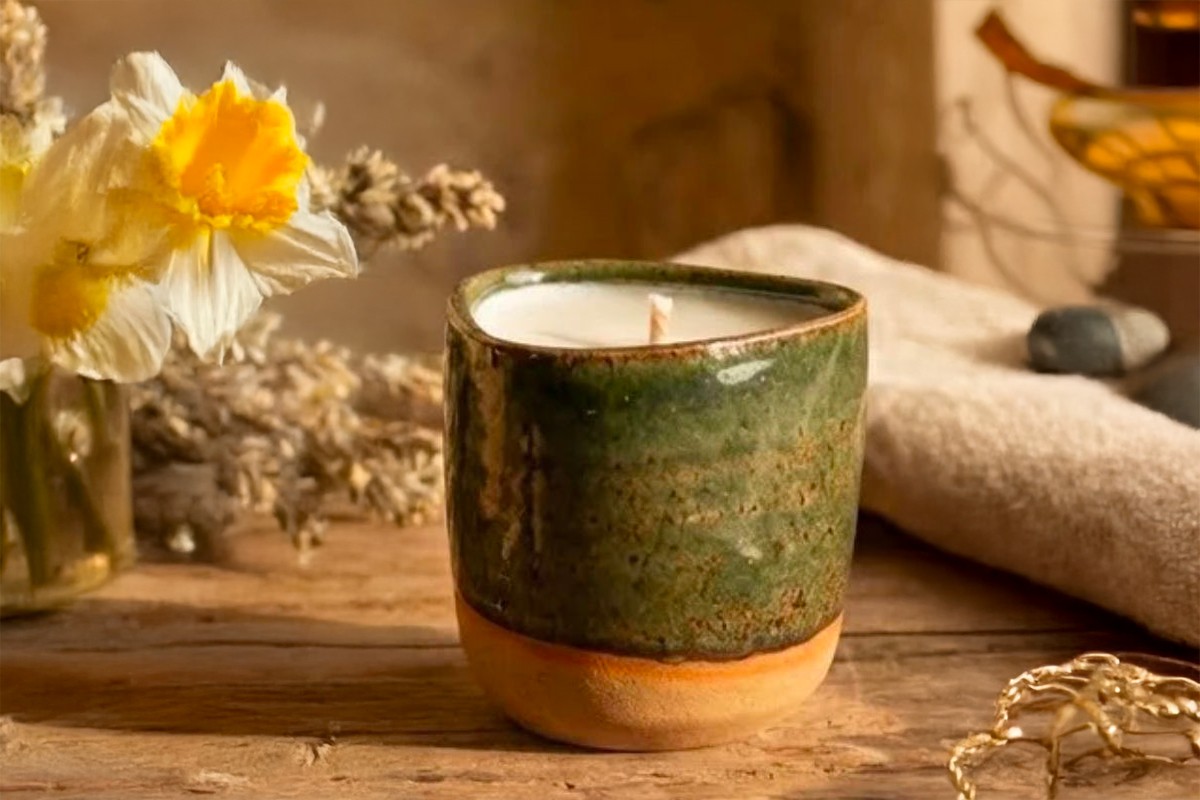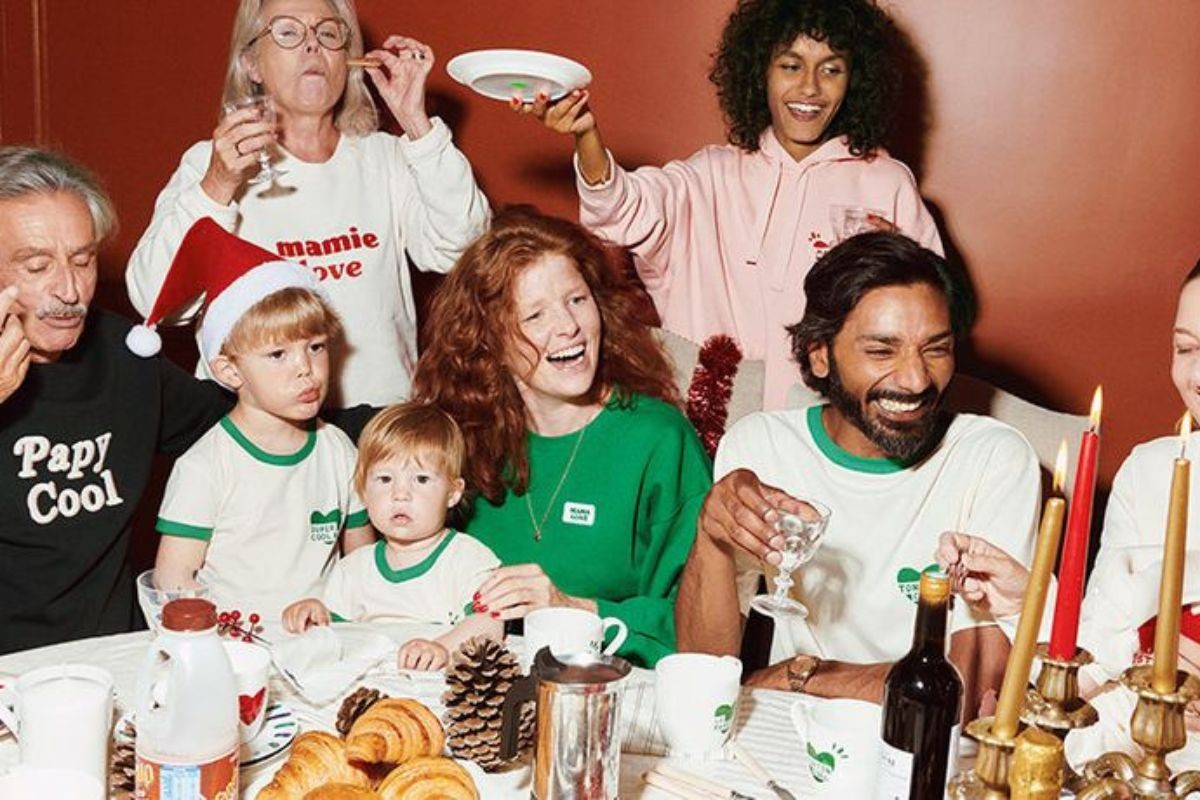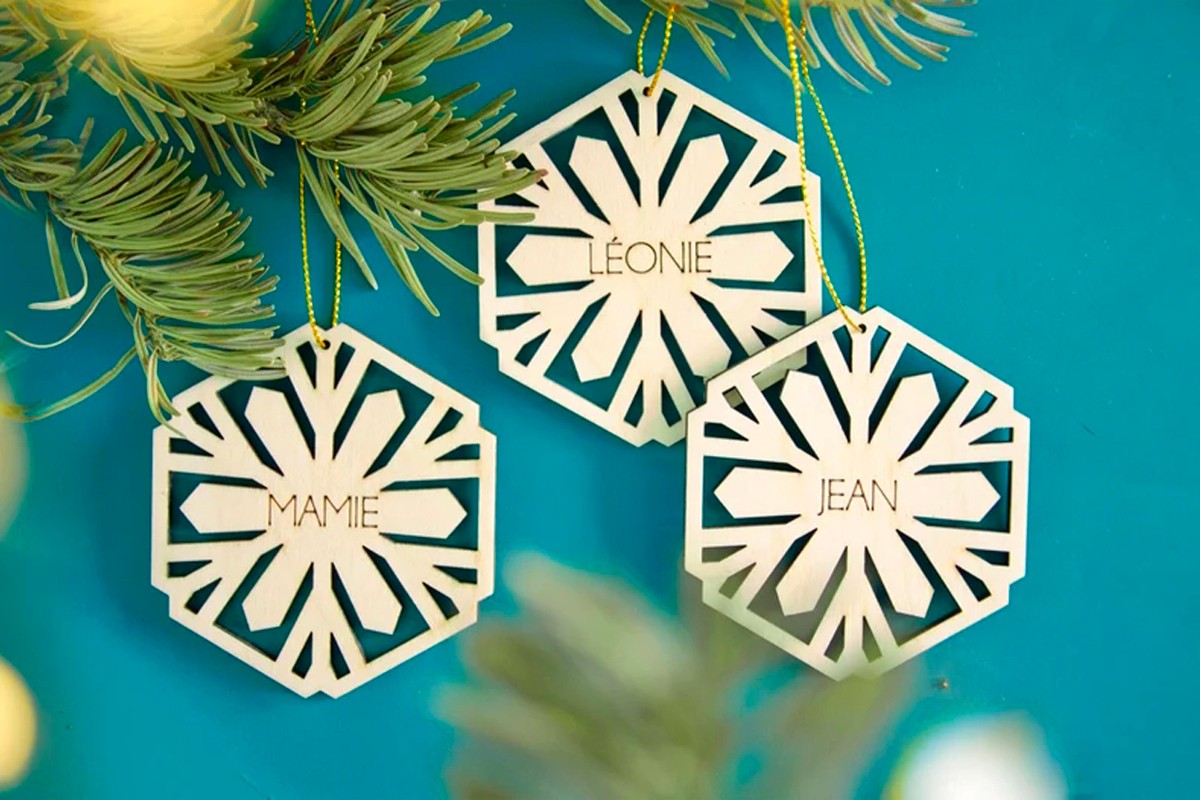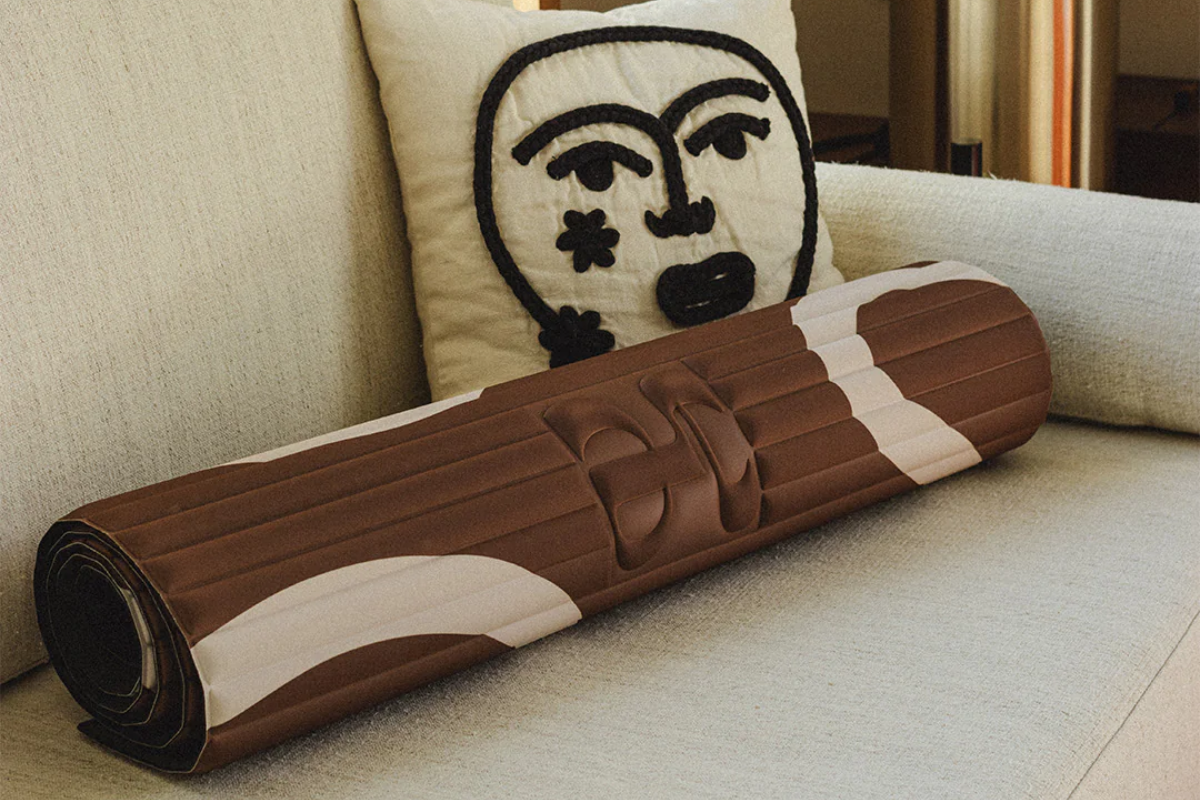Let's talk about the one we all have in our cupboards!
This month we wanted to tell you about our selection of Made in France jeans, but not only. It's also an opportunity to explain our choice of brands, the behind-the-scenes aspects of making jeans in France, the cost, the social and economic impact etc...
But first, let's put things into perspective: what do we really know about this material?
How about a little culture?
The fabric known as denim was used as early as the 16th century by the Genoese navy to equip its ships with sails and to clothe its sailors. Experimentation led to the development in the 17th century of another fabric, a wool & silk textile that became known as denim (from Nîmes). This textile, renowned for its resistance (it can be reused and patched), is woven in twill weave, dyed with Genoa blue (indigo) to produce a hard-wearing garment that doesn't get dirty.
The invention of the garment itself - denim pants - was a collaboration between Levi Strauss and Jacob Davis. A global success, denim became a symbol of freedom that found its way into every wardrobe. And here we are, in 2023, and 2.3 billion pairs of jeans are now sold every year, representing sales of $58 billion!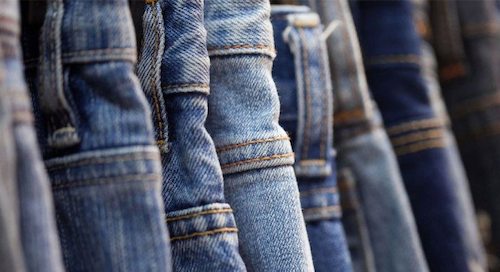
When we talk about jeans, we all have several brands in mind, including the iconic Levi Strauss, don't we? Model 501, the iconic jeans worn from generation to generation (currently selling for between €120 and €150). A flagship piece that hides the underbelly of a less-than-stellar fashion. As we all know, there's a considerable cost to the planet behind this purchase, and given the current ecological situation, it's hard for our conscience to justify meaningless purchases...
Because there are now ways of doing things differently, and without compromise (not even price!). Of course, it's difficult to fight all ecological battles at once, but this one is so easy: to act by being an active player in your own consumption is to make a difference :-)
Some key figures?
* One pair of jeans = 285 showers (in terms of water used).
* A pair of jeans can travel 65,000 km, or 1.5 times around the Earth, from the place where they were designed to the place where they are purchased.
* To wash or dye it, this fabric requires a hundred kilos of petroleum & solvents that are toxic, especially when inhaled.
At L'Atelier Français, we make it a point of honor to choose brands that are made in France. We are a concept store dedicated to products made in France, and we are your first point of contact, guaranteeing this transparency.
We often cut ourselves off from brands we like because a link in the chain doesn't meet our specifications, but it's a choice that makes sense to us.
Here, we suggest you buy a pair of jeans from the boutique for between 120 and 140 euros.
So if you don't need to pay more for more ethical jeans, why not? What? French jeans aren't more expensive than Levi's? Yes, you heard me right!
Yes, you can buy them from Fast Fashion for 89 euros (which, by the way, will be just as made in China as your Levi's, said to be of better quality), but let's compare what's comparable in terms of range positioning.
If you want to go Made in France in your dressing room, start with your jeans!
What about style?
French brands have made great strides in terms of cut and color in recent years. You can now find elephant's foot, slim, boyfriend, low-rise ... All you need to do is walk through our door and we'll tell you all about it.
Only 120,000 pairs of jeans are made in France every year. On the front line, five brands are working to reach the million-unit mark by 2025: Dao Davy, Atelier Tuffery, Kiplay, Le Gaulois Jeans and the pioneer of the strip: 1083.
In their quest for less-polluting jeans, these brands have decided to develop new techniques to manufacture jeans that are more eco-responsible, and in France. A way for you to discover them and become aware of what's behind the 129 euros you're about to spend on them.
1083 and its slogan :
"Produced less than 1083 kilometers from your home".
The brand is based in Romans-sur-Isère (Drôme). Since 2013, the brand has continued to irrigate the local economy, employing more than eight workshops across France.
100% of 1083 jeans are made from organic cotton. Most of the organic cotton comes from Tanzania, Benin or Mali, where natural irrigation limits the need for artificial irrigation.
The jeans are washed without a single drop of water, but with laser or ozone.
2018, creation of the jeans school to redevelop know-how in the sector, which has enabled the hiring of 20 seamstresses in 2021.
Inauguration of a new manufacturing site at Tissage de France, in the Vosges.
1083 jeans at L'Atelier Français
Women's jeans selection. Men's jeans selection.
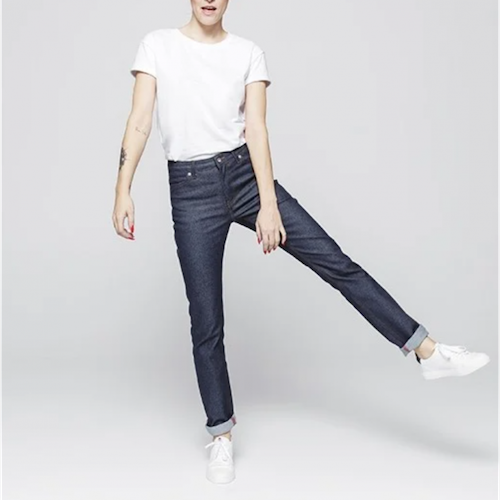
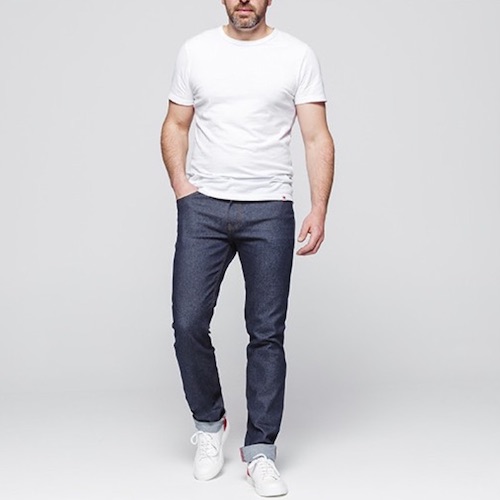
Dao Davy, made in Nancy
Uses mostly natural materials such as organic cotton and French linen.
2018, the first French brand to produce jeans grown, woven and manufactured in France.
Works with selvedge*, and has reintroduced this (Japanese) technique to France to market the first French selvedge jean, woven in Montbéliard.
* A weaving technique with fine edges thanks to a selvedge, making jeans more resistant over time.

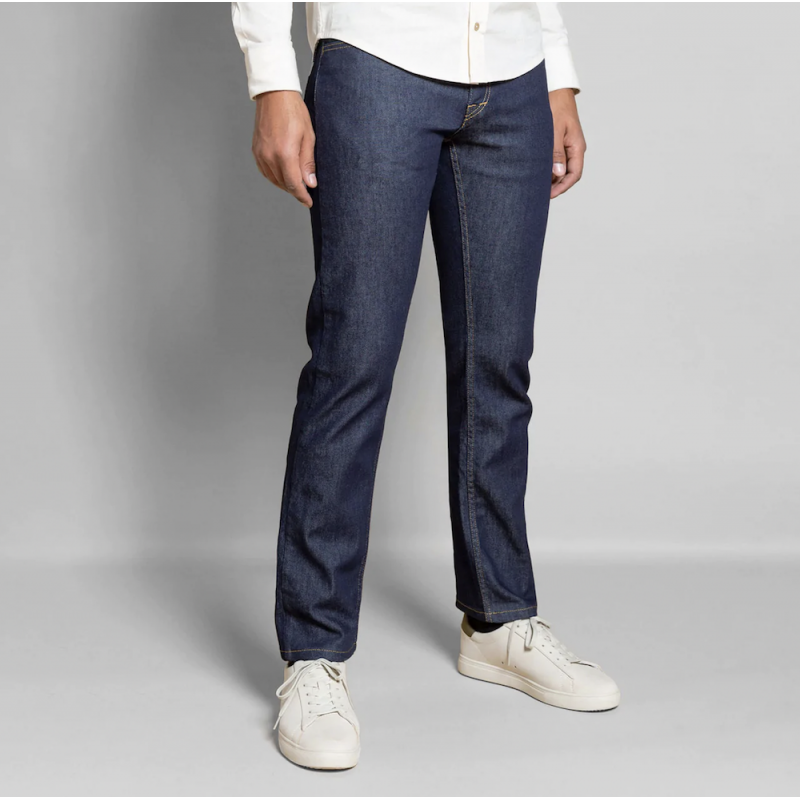
The Gentle Factory
A social approach that works with solidarity-based suppliers.
Use of natural, organic and recycled materials.
Their warp and weft dyers recover 100% of their rainwater - they don't consume water, they use it!
Oeko-tex certified fabrics.
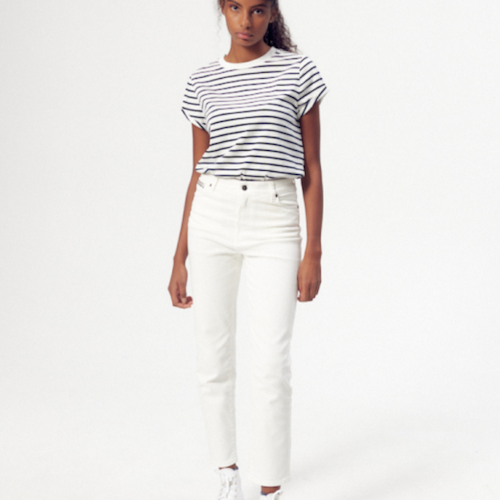
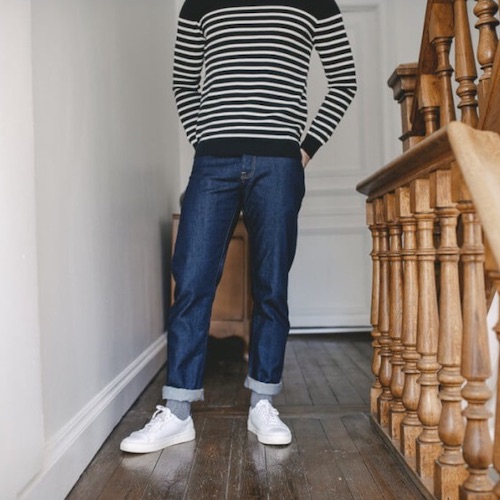
For those who want to know more about Denim and the true cost of French manufacturing, here are two very well explained articles from The Good Goods :-)
Je lis l'article : le vrai coût de la fabrication française >
je lis l'article : Denim, l'impact social et environnemental du jeans >
We value your opinion
We're a boutique, a brand retailer. But we're also consumers like you, looking for honesty and sincerity. Buying in a more ethical and committed way, yes, but when you can measure the difference your purchase really creates, it's even better! We trust these ready-to-wear brands for their values, each in their own way contributing to this immense challenge.
Write to us !
